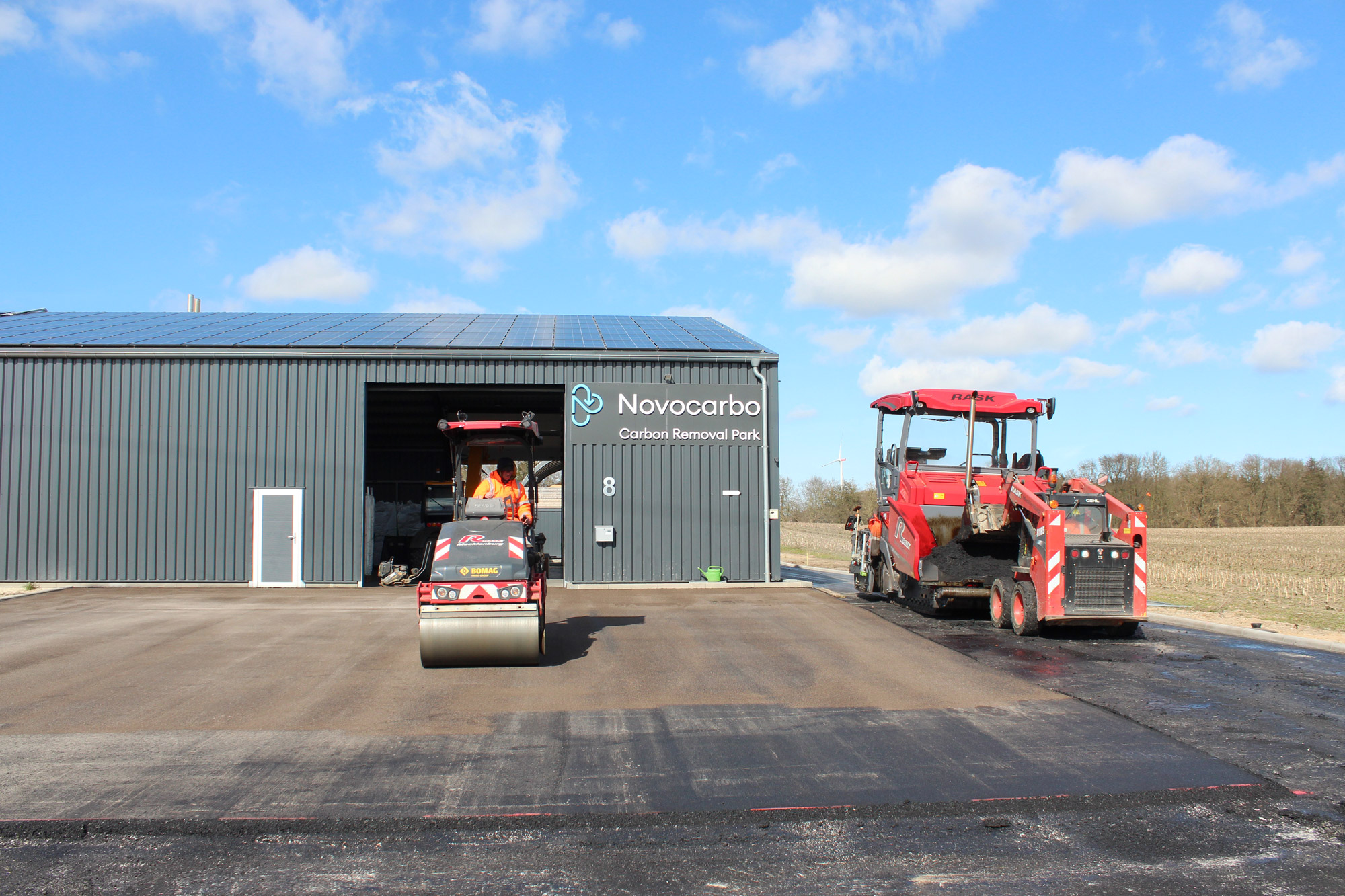Biochar is emerging as a promising additive for road construction – capable of making asphalt more durable while permanently storing CO₂. A current pilot project demonstrates how technology and climate protection can meet right on the asphalt.
The road construction industry is on the verge of transformation. As the demand for climate protection, resource efficiency, and durability grows, alternative materials are moving into focus. One of them is biochar – a porous, carbon-rich solid produced through the thermal conversion of plant-based residues. It has been used in agriculture and construction for years. Now, road construction is becoming an increasingly interesting field of application.
The idea: biochar could partially replace mineral fillers or fossil-based raw materials like bitumen while also improving the physical properties of asphalt and locking away carbon in the process. This creates a dual benefit, both technical and ecological. Early studies and pilot projects indicate that biochar can positively influence asphalt performance. At the same time, carbon originally stored in plants remains bound in the road surface for decades or even centuries, instead of re-entering the atmosphere as CO₂.

Biochar is created through pyrolysis which is the thermal decomposition of organic material such as wood residues, green waste, or crop byproducts in the absence of oxygen. During this process, the carbon is retained in solid form. The result is a highly porous, chemically stable material with a large internal surface area.
These structural characteristics give biochar unique qualities: it can store water and nutrients, bind pollutants, and influence microbial activity. In agriculture, it’s used together with microorganisms to improve soil health, prevent nutrient leaching, and reduce emissions. In construction, it already serves as an additive in concrete, mortar, and insulation materials. In asphalt, it could soon play a similar role – functioning as a filler and long-term CO₂ sink.
A recent pilot project by Novocarbo in Grevesmühlen (Mecklenburg-Western Pomerania) tested the practical feasibility of biochar in road construction. Around 7 tons of finely milled biochar with a grain size below 5 millimeters were mixed into the top layer of a road surface – at a dosage of about 3 % of the total material. The goal was to assess the handling, technical properties, and climate impact under real-world conditions.
Initial results show that adding biochar increases asphalt stiffness and can reduce rutting at high temperatures. The material’s antioxidative properties may also improve aging resistance – a key advantage given rising thermal stress from climate change. According to project data, processing performance on-site was also positive.

A key argument for using biochar is its potential for long-term CO₂ sequestration. Within this pilot project, each ton of asphalt produced stored around 75 kilograms of CO₂-equivalent permanently. For the total of 233 tons of asphalt used, this corresponds to a net storage of roughly 17.5 tons of CO₂-equivalent, even after accounting for transport-related emissions and using conservative assumptions about permanence.
The biochar used in the project was certified under the European Biochar Certificate (EBC), which defines strict criteria for feedstock origin, pollutant thresholds, and traceability.
Globally, research into integrating biochar into infrastructure applications is gaining momentum. In the Netherlands, early road sections using biochar-enhanced asphalt have been built, sometimes in combination with biogenic binders. In the United States, the company Verde Resources installed 110 tons of cold-mix asphalt containing 5 tons of biochar in December 2024. Despite winter conditions, the installation went smoothly and resulted in the issuance of eight tons of verified Carbon Removal Credits. Studies from Australia and Southeast Asia also show that biochar can increase the viscosity of asphalt binders and extend pavement lifespan.
Experts, however, emphasize the need for further long-term studies – particularly to understand interactions with other asphalt components, verify mechanical performance, and establish reliable frameworks for carbon credit generation and trading. In Germany, asphalt is almost entirely recycled rather than thermally treated. This fact is recognized in EPD rules, carbon accounting systems, and ISO standards, ensuring that regional projects make a verifiable contribution to environmental quality and performance.
As pressure mounts to decarbonize the construction sector and adopt more sustainable materials, biochar is moving into the spotlight as a technical additive with climate value. Its combination of carbon storage and performance-enhancing properties could soon make it a key player in developing climate-resilient infrastructure.
Author: Johanna Schwarz is an editor at the CSR magazine “forum Nachhaltig Wirtschaften.” Her work focuses on circular economy, soil protection, society & politics, and future-oriented solutions.
